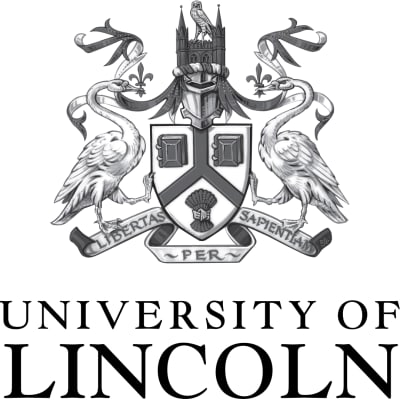
BSc (Hons) Nursing (Registered Nurse - Child)
University of Lincoln

Key Information
Campus location
Lincoln, United Kingdom
Languages
English
Study format
On-Campus
Duration
3 years
Pace
Full time
Tuition fees
Request info
Application deadline
Request info *
Earliest start date
Request info
* late applications will be considered if suitable vacancies remain
Discover Lincoln Wherever You Are in the World
Our webinars, subject masterclasses, question and answer sessions, and student panel talks are a great way to discover what it is like to live and study at the University of Lincoln.
Introduction
Nurses perform a vital role in 21st Century healthcare, in both primary and secondary care settings, restoring and promoting health, supporting patients and their families, and profiling the healthcare needs of communities.
The University of Lincoln recognises the challenges facing current and future healthcare and nursing practice, offering three distinct nursing programmes specialising in adult, child, learning disabilities, and mental health. Our student nurses played a key role during the Covid-19 pandemic. As well as supporting hospitals and vaccination centres across Lincolnshire, their help played an integral component in the success of the University's Test and Trace Centre. We are extremely proud of our students for their contribution and dedication.
Our professionally-accredited programmes enable students to become registered nurses with the Nursing and Midwifery Council (NMC). The programmes aim to prepare students to become fit for practice in accordance with the NMC's Standards for Pre-registration Nursing Education and be eligible to register as a qualified nurse. Students are encouraged to become confident, critically analytical advocates of excellence in nursing practice within their respective specialisms.
The School of Health and Social Care works with employers to provide employees with the opportunity to study for an undergraduate BSc (Hons) Nursing degree through an apprenticeship route, funded by the Government and your employer.
"This information was correct at the time of publishing (July 2023)"
Admissions
Curriculum
How You Study
Our nursing courses are offered over three academic years, consisting of 45 weeks of study per year. They utilise a range of teaching and learning styles. Students spend half of their time studying at the University and the other half gaining practical experience in nursing.
The theoretical and clinical elements of the course are centred on the NHS values of working together for patients; respect and dignity; commitment to quality care; compassion; improving lives; and the belief that everyone counts.
First-year modules aim to provide the core foundation skills for adult, child, learning disabilities or mental health nursing, with a focus on the acquisition of knowledge and understanding of anatomy, physiology, pharmacology, and social sciences. This is built upon in the second year, where students can develop professional skills and apply ethical principles to rational decision-making.
During the final year of the degree, students are able to explore the theory behind leading and managing complex nursing care and consider the theory and practice of innovative and transformational change in preparation for their final project.
First Year
- Fundamental nursing care (Core)
- Holistic person-centred children's nursing care (Core)
- Nursing and the interprofessional team (Core)
- Personal Development and Resilience (Core)
Second Year
- Assessing needs, planning and coordinating care (Core)
- Healthcare Sciences (Core)
- Promoting health and preventing ill health (Core)
- Providing and evaluating care (Core)
Third Year
- Being an accountable professional (nursing L6) (Core)
- Innovation to transformation in nursing practice (Core)
- Leadership and practice education (nursing) (Core)
- Leading and managing complex children care (Core)
† Some courses may offer optional modules. The availability of optional modules may vary from year to year and will be subject to minimum student numbers being achieved. This means that the availability of specific optional modules cannot be guaranteed. Optional module selection may also be affected by staff availability.
How You Are Assessed
The way students are assessed in this course may vary for each module. Examples of assessment methods that are used include written assignments, presentations, workbooks and practical observations. The weighting given to each assessment method may vary across each academic year.
The University of Lincoln's policy on assessment feedback aims to ensure that academics will return in-course assessments to students promptly - usually within 15 working days after the submission date.
BSc Nursing Apprenticeship (18-month Pathway)
The School of Health and Social Care works with employers to provide employees with the opportunity to study for an undergraduate BSc (Hons) Nursing degree through an apprenticeship route, funded by the Government and your employer. This route enables Accredited Prior Learning (APL) to be applied if evidence can be provided of 120 credits (Level 4) and 60 credits (Level 5), along with evidence of 1,150 practice hours. We would recommend that you discuss your individual requirements with us prior to application to ensure that this option is the right pathway for you. You can find out more about this apprenticeship online.
Accredited Programme
This course is accredited by the Nursing and Midwifery Council (NMC), and enables you to register as a qualified nurse upon graduation. You'll be required to complete competencies for nursing in practice as part of the NMC Future Nursing: Standards framework for Nursing and Midwifery (2018).
Gallery
Program Outcome
How You Study
Our nursing courses are offered over three academic years, consisting of 45 weeks of study per year. They utilise a range of teaching and learning styles. Students spend half of their time studying at the University and the other half gaining practical experience in nursing.
The theoretical and clinical elements of the course are centred on the NHS values of working together for patients; respect and dignity; commitment to quality care; compassion; improving lives; and the belief that everyone counts.
First-year modules aim to provide the core foundation skills for adult, child, learning disabilities or mental health nursing, with a focus on the acquisition of knowledge and understanding of anatomy, physiology, pharmacology, and social sciences. This is built upon in the second year, where students can develop professional skills and apply ethical principles to rational decision-making.
During the final year of the degree, students are able to explore the theory behind leading and managing complex nursing care, and consider the theory and practice of innovative and transformational change in preparation for their final project.
Scholarships and Funding
For eligible undergraduate students going to university for the first time, scholarships and bursaries are available to help cover costs. The University of Lincoln offers a variety of merit-based and subject-specific bursaries and scholarships.
Several scholarship options are available. Please check the university website for more information.
Program Tuition Fee
Career Opportunities
Graduates have progressed to nursing roles in a range of diverse health and social care settings, from acute nursing to community care, or in education, research, and health management. Some have gone on to further study at postgraduate level.